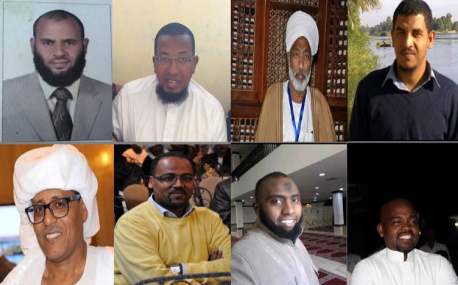The endless tragedy of Hossam Al-Menoufy: Egypt to receive transit flight passenger information
The Egyptian Minister of Civil Aviation issued a decision obligating all airlines operating in the Arab Republic of Egypt, which operate regular, chartered, or private flights, internally or externally, and every aircraft that uses Egypt’s airports, to provide advance information about all passengers on its flights to and from Egypt, including aircraft crew data, according to the required specifications. This comes two weeks after the arrest of an Egyptian citizen wanted by the security forces on political charges after a plane carrying him made an emergency landing at an Egyptian airport, which indicates that the regime of President Abdel Fattah Al-Sisi seeks to strengthen and tighten the control process at airports.
Resolution details
The decision stipulates the obligatory submission of pre and final passenger data for all aircraft departing from Egypt’s airports simultaneously with the completion of passenger travel procedures and within a maximum period of five minutes from the time of completing these procedures. The final data of the passengers must also be submitted for all aircraft arriving at the airports of the Republic within a period not exceeding the time of closing the aircraft doors before takeoff. This decision will come into force on March 1, as all airlines operating in the Republic’s airports and airline agents must identify a person responsible for their obligation to provide passenger data.
The ministerial decision imposes the collection of a fee, under the name of “early passenger inquiry,” of $2 for each passenger coming to, departing from, transiting, or transferring to Egypt. Aircrews, additional crews, and children under two years of age are exempt from this fee. Anyone who violates this decision shall be punished under the legally stipulated penalties, which include in the event of delay in sending data or sending incorrect data a fine of EGP 20,000 maximum for one trip. In the event of abstaining and not sending the passenger data at all, a fine of up to EGP 50,000 will be paid for one trip.
Fears of targeting opponents
On January 12, Hossam Al-Menoufy, residing in Sudan and wanted by security in Egypt, was travelling from Khartoum to Istanbul, via a Badr Airlines flight, when he was arrested by security at Khartoum Airport, who interrogated him for some time and then allowed him to resume his flight. During the plane’s flight, the captain informed the passengers that there was a technical problem that required the plane to make an emergency landing at Luxor Airport in Egypt, because of an alarm coming from the smoke detection system in the cargo cabin. However, the passengers of the plane denied, later, that they heard any alarm during the flight. Immediately after the plane landed in Luxor, the Egyptian security forces arrested Hossam Al-Menoufy, after which he was forcibly disappeared before his detention was announced pending the cases in which he was accused.
Al-Menoufy, who has lived outside Egypt since 2016, is accused of being one of the founders of the terrorist Hasm movement, which carried out armed violence in the wake of the 2013 military coup. His family denies these accusations, and say he was arrested because he was an opponent of the Egyptian regime between June 2013 and 2016, when he was a student at the Faculty of Engineering at Menoufia University.
It is believed that the landing of the Badr Company plane at Luxor Airport was not an emergency due to the presence of a fire alarm, as was claimed, but the matter was in coordination between the Sudanese and Egyptian security authorities and with the complicity of the Badr Company, to extradite Hossam Salam to Egypt. As well as the fact that Al-Menoufy was not involved in the crimes of which he is accused, it is certain that he will not be subject to a fair trial by the Sisi regime.
The decision issued by the Minister of Aviation aims to extend the security arm of the Egyptian regime which seeks to obtain prior data on all the pilots of the planes passing through its territory to scrutinise the security forces, and to have an opportunity to prepare to hunt down those it deems to oppose it, which makes Egyptian airports unsafe for anyone suspected of opposing the regime.





Recent Comments